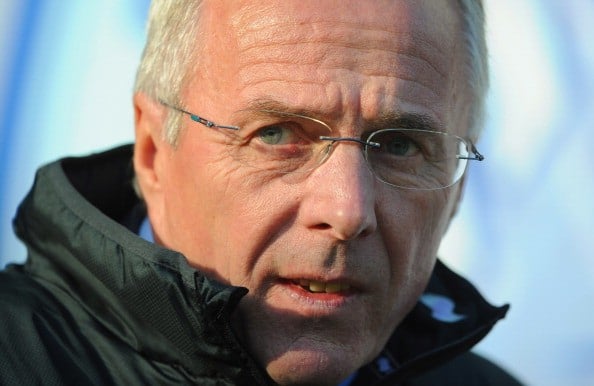What is Sven-Göran Eriksson’s Net Worth?
Sven-Göran Eriksson was a Swedish footballer and manager who had a net worth of $35 million. Sven-Göran Eriksson’s career spanned from 1964 to 2019. He had his greatest career successes as a club manager, winning 18 trophies with various teams in Sweden, Portugal, and Italy. Later in his career, Eriksson managed the national football teams of England, Mexico, the Ivory Coast, and the Philippines.
Early Life
Sven-Göran Eriksson was born on February 5, 1948 in Sunne, Sweden to Ulla, who worked in a textile store, and Sven, a bus conductor. He was raised in Torsby with his younger brother Lars-Erik.
Playing Career
At the age of 16 in 1964, Eriksson made his professional football debut with the Swedish Division 4 team Torsby IF. He played for the team until 1971, when he switched to SK Sifhälla. Eriksson subsequently played for the Division 2 team KB Karlskoga from 1972 to 1973. He officially retired from playing in 1975.
Managerial Career, 1977-2001
Following his retirement as a player, Eriksson became an assistant to Degerfors IF manager Tord Grip. A year later, in 1977, he became the manager of Degerfors. During his tenure, which lasted through 1978, Eriksson twice led the team to the playoffs. He continued his success as the manager of IFK Göteborg from 1979 to 1982. Although his highly pragmatic style alienated some fans, he got incredible results, leading IFK to its first-ever Svenska Cupen, in 1979, and to a treble in 1982 that included the first-ever UEFA Cup for any Swedish club. Eriksson’s success in Europe led to his recruitment by the Portuguese club Benfica, which he originally managed from 1982 to 1984. He made an immediate impact during his first year as manager, leading Benfica to Primeira Divisão and Taça de Portugal titles. Eriksson helped the team win a second consecutive Primeira Divisão title in his second year as manager. He subsequently moved to Italy, where he managed Roma from 1984 to 1987. His greatest achievement with the team was winning the Coppa Italia in 1986. Remaining in Italy, Eriksson managed Fiorentina from 1987 to 1989.
After his time in Italy, Eriksson returned to Portugal to manage his former team Benfica. He easily repeated his former successes with the team during his second managerial tenure, leading Benfica to a Supertaça Cândido de Oliveira title in 1989 and another Primeira Divisão title in 1991. Additionally, the team came in second in the 1989-90 European Cup. In 1992, Eriksson went back to Italy to manage Sampdoria. With the team in 1994, he won his second career Coppa Italia. Eriksson left Sampdoria in 1997 but remained in Italy to manage Lazio. He had some of his greatest years ever with Lazio, starting in 1998 with both Coppa Italia and Supercoppa Italiana titles. In 1999, Eriksson led the team to UEFA Cup Winners’ Cup and UEFA Super Cup titles. His success continued in 2000 as Lazio won the Serie A in addition to the Coppa Italia and the Supercoppa Italiana. Eriksson’s tenure with the team ended on something of a sour note in 2001, when he was asked to resign by Lazio president Sergio Cragnotti amid the team’s floundering performance.
Michael Regan/ Getty Images
Managerial Career, 2001-2019
In early 2001, Eriksson became the new manager of the England national football team. He managed the team through 2006, leaving after that year’s World Cup. Eriksson subsequently managed the English Premier League club Manchester City from 2007 to 2008. He then became the new manager of the Mexico national football team. However, due to his poor performance with Mexico, Eriksson was removed from his job in 2009. He went on to manage the Ivory Coast national football team in 2010. Returning to England after that, Eriksson managed the Premier League club Leicester City for a year.
Following stints as the technical director of the Thai Premier League team BEC Tero Sasana and the Dubai-based club Al Nasr, Eriksson became manager of the Chinese Super League club Guangzhou R&F in 2013. After leaving the club in late 2014 due to contract disputes, he joined fellow Chinese Super League club Shanghai SIPG, which he managed through 2016. Subsequently, Eriksson managed the China League One club Shenzhen before he was fired in mid-2017. He finished his career managing the Philippines national football team from 2018 to 2019.
Personal Life and Death
In 1977, Eriksson married Ann-Christine Pettersson. The couple had two children named Lina and Johan, and divorced in 1994. Later in the decade, Eriksson became romantically involved with lawyer Nancy Dell’Olio, with whom he moved to London in 2001. The year after that, he had an affair with television host and model Ulrika Jonsson, but ultimately returned to Dell’Olio. Eriksson had another affair in 2004, with secretary Faria Alam.
In early 2024, Eriksson announced that he had been diagnosed with pancreatic cancer. He passed away from the disease on August 26 that year, at his home in Sweden.
All net worths are calculated using data drawn from public sources. When provided, we also incorporate private tips and feedback received from the celebrities or their representatives. While we work diligently to ensure that our numbers are as accurate as possible, unless otherwise indicated they are only estimates. We welcome all corrections and feedback using the button below.

